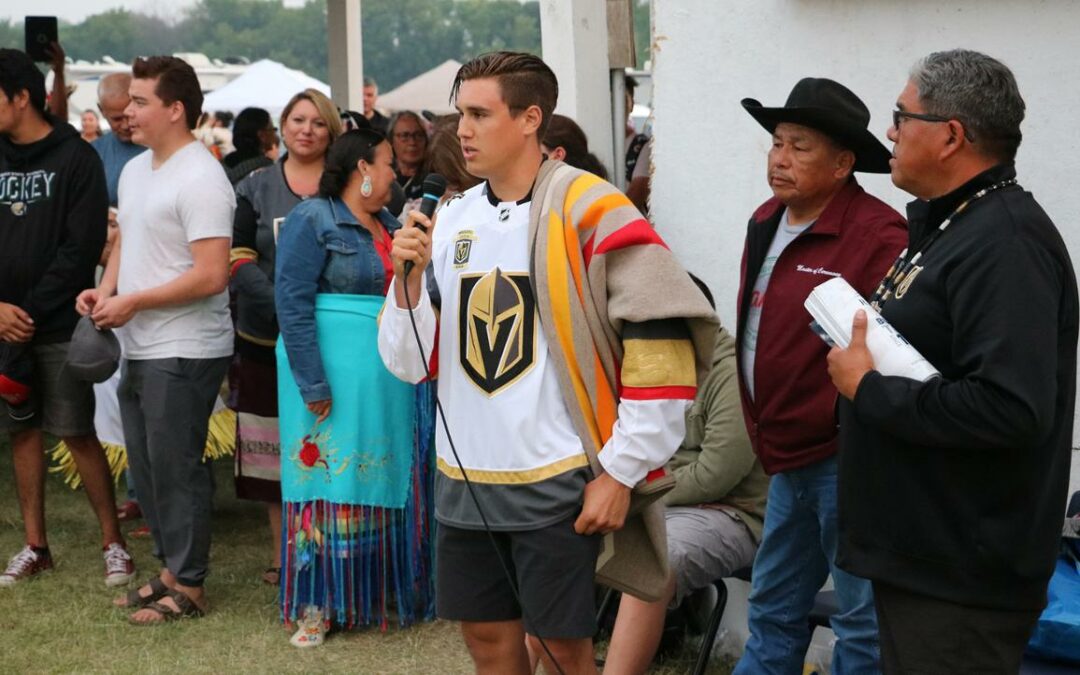(Photo courtesy of NHL.com.)
By: Dave Baxter, Local Journalism Initiative Reporter, Winnipeg Sun
Geraldine Shingoose still remembers the jokes and the ridicule she would often face as a child because of her traditional Indigenous name, and that is why she felt sadness and anger after a high-profile sports broadcaster recently ridiculed the last name of a First Nations athlete from Manitoba playing in the Stanley Cup Playoffs.
“I was called goose, people just called me goose, and they thought it was funny, but when you’re just a young kid it really hurts,” Shingoose said.
“Even back then I knew they were making fun of my name but they were also making fun of my culture, so they are making you feel ashamed about who you are.”
On Monday evening, after the Vegas Golden Knights defeated the Edmonton Oilers 5-1 in game three of their second-round NHL playoff series, highlights of the game were being shown on ESPN’s SportsCentre, and during the segment, longtime broadcaster and anchor John Anderson made comments ridiculing the last name of Golden Knights defensemen Zach Whiteloud, and comparing his name to “toilet paper.”
Whitecloud, 26, who was born in Brandon and is a member of the Sioux Valley Dakota Nation, is the first player from that First Nation community to make it onto the roster of a National Hockey League team, and on Monday he scored his first goal in a Stanley Cup Playoff game.
Shingoose said it is now sad to see the attention focused on his name, and not on that accomplishment.
“He took that away from that young boy,” Shingoose said. “It was an opportunity for a celebration and to recognize that moment and that goal, and he took that away from him.”
Shingoose, who currently lives in Winnipeg, was forced to spend nine years in a residential school in Saskatchewan, but she said it was after leaving residential school and going to a public junior high and later a high school that she started to hear the jokes about her name, and that is why she felt so “insulted” when she heard the comments Anderson made.
“On the bus and at the school the white students would be teasing me and teasing the other Indigenous kids about their names, and it was traumatic experience,” she said.
She said that stereotypes about her name continued into adulthood.
According to Shingoose, Whitecloud is a traditional and sacred Indigenous name that goes back generations among First Nations families in Manitoba.
“It is an honorable name, so it was very disrespectful, and the toilet paper reference was just so unprofessional, and very low on his part,” she said.
“It was an insult to that young hockey player, but also to our Indigenous names, and to our culture and our people.”
